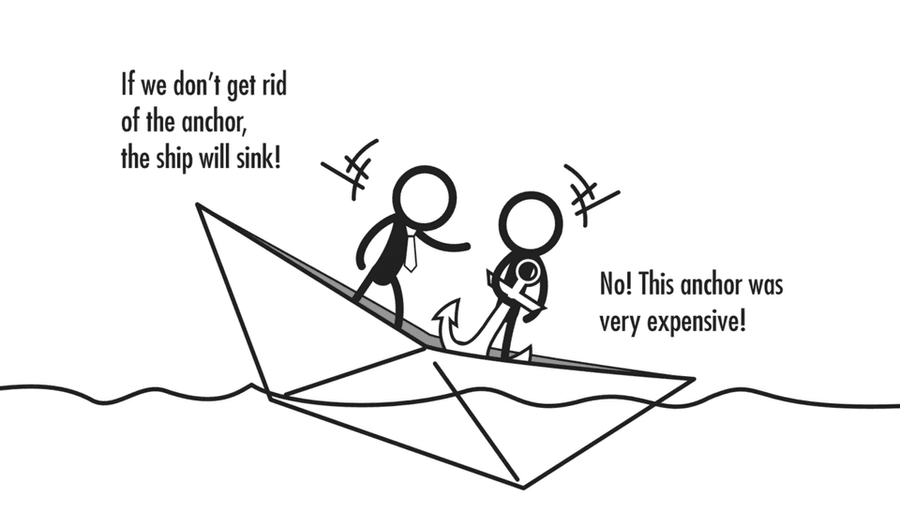Is the Sunk Cost Fallacy Actually Smart Business?
Curated from: insight.kellogg.northwestern.edu
Ideas, facts & insights covering these topics:
3 ideas
·813 reads
20
2
Explore the World's Best Ideas
Join today and uncover 100+ curated journeys from 50+ topics. Unlock access to our mobile app with extensive features.
Sunk Cost Fallacy
Any student of economics knows this basic rule, which states that rational agents should not take irrecoverable or “sunk” costs into account when making decisions about present or future investments. Nevertheless, human beings break this rule all the time, succumbing to a cognitive bias known as the “sunk-cost fallacy.”
If you have ever sat through a bad movie because you did not want to “waste” the money you paid for the ticket or finished a PhD program you lost interest in years ago because of all the work you had already done, you have made this mistake.
26
454 reads
Sunk Cost: Keep Calm and Carry On
But what if this behaviour was not always a mistake—what if, in certain situations, this “fallacy” were actually an optimal decision-making strategy?
Human beings—even rational ones—have a limited capacity to remember the original reasoning behind their decisions. If that capacity is exceeded, the information could be lost—so we need a mental placeholder that can remind us of why we decided something, just as tying a string around your finger reminds you that you need to pick up milk on the way home from work. This kind of ad hoc “memory device” is called a mnemonic.
19
208 reads
Inducing Forgetfulness for Fun and Profit
The Sunk Cost fallacy, then is a useful mental shortcut passed down to us by our savannah-dwelling ancestors.
We call it the ‘theory of the second best': The more you can remember, the better it is, and you don’t have to commit this fallacy at all. But if it’s a common feature of human beings that they do forget stuff, then the sunk cost fallacy is an optimal response to that forgetfulness. Sunk costs can encode information about decisions you made in the past, and if that’s the case you should take them into account, because if you didn’t, you’d make even worse decisions.
19
151 reads
IDEAS CURATED BY
Camille A.'s ideas are part of this journey:
Learn more about economics with this collection
How to set clear objectives
How to follow up after a meeting
How to manage time effectively
Related collections
Similar ideas
2 ideas
The sunk cost fallacy: How to make better decisions?
thinkinginbusiness.com
7 ideas
8 ideas
7 Cognitive Biases That Make Us Suck at Time Management
blog.doist.com
Read & Learn
20x Faster
without
deepstash
with
deepstash
with
deepstash
Personalized microlearning
—
100+ Learning Journeys
—
Access to 200,000+ ideas
—
Access to the mobile app
—
Unlimited idea saving
—
—
Unlimited history
—
—
Unlimited listening to ideas
—
—
Downloading & offline access
—
—
Supercharge your mind with one idea per day
Enter your email and spend 1 minute every day to learn something new.
I agree to receive email updates

